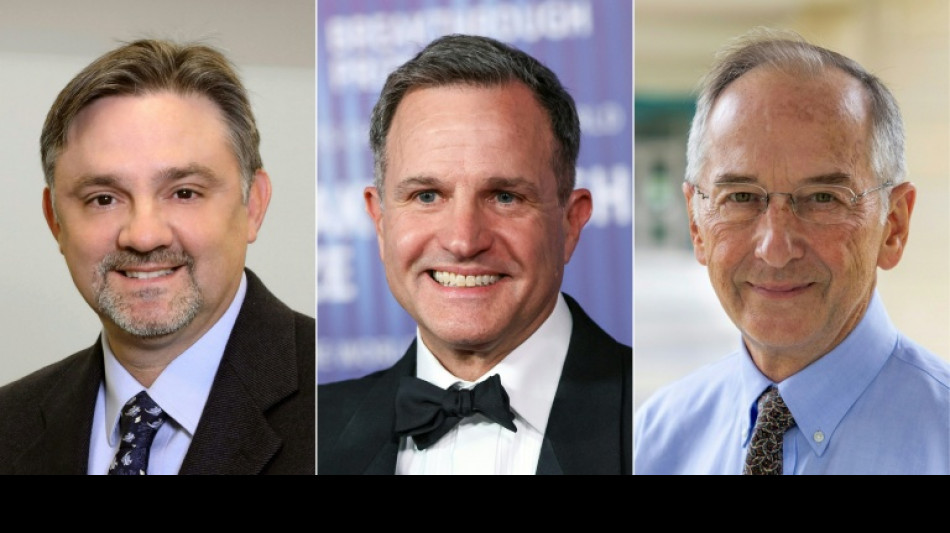
-
 Czech qualifier Bejlek claims first title in Abu Dhabi
Czech qualifier Bejlek claims first title in Abu Dhabi
-
French duo reach Shanghai, completing year-and-a-half walk

-
 Australian snowboarder James eyes elusive Olympic gold
Australian snowboarder James eyes elusive Olympic gold
-
Sequins and snow: Eva Adamczykova makes Olympic return

-
 Vonn set for Olympic medal bid after successful downhill training
Vonn set for Olympic medal bid after successful downhill training
-
Shepherd takes hat-trick as West Indies beat Scotland in T20 World Cup

-
 Sausages will sell after thrill-seeker Von Allmen wins Olympic downhill
Sausages will sell after thrill-seeker Von Allmen wins Olympic downhill
-
Swiss racer Von Allmen wins first gold of Winter Olympics

-
 'Wake up': Mum sparks comeback after scare for freeski star Gu
'Wake up': Mum sparks comeback after scare for freeski star Gu
-
Von Allmen wins men's Olympic downhill gold, first of Games

-
 First medals up for grabs at Winter Olympics
First medals up for grabs at Winter Olympics
-
Afghanistan captain Khan harbours dream of playing in Kabul

-
 Lindsey Vonn completes second Winter Olympics downhill training run
Lindsey Vonn completes second Winter Olympics downhill training run
-
Freeski star Gu survives major scare in Olympic slopestyle

-
 Iran FM looks to more nuclear talks, but warns US
Iran FM looks to more nuclear talks, but warns US
-
Hetmyer's six-hitting steers West Indies to 182-5 against Scotland

-
 After boos for Vance, IOC says it hopes for 'fair play'
After boos for Vance, IOC says it hopes for 'fair play'
-
Thousands gather as Pakistan buries victims of mosque suicide attack

-
 Lindsey Vonn completes second downhill training session
Lindsey Vonn completes second downhill training session
-
US pressing Ukraine and Russia to end war by June, Zelensky says

-
 Faheem blitz sees Pakistan avoid Netherlands shock at T20 World Cup
Faheem blitz sees Pakistan avoid Netherlands shock at T20 World Cup
-
Takaichi talks tough on immigration on eve of vote

-
 England's Salt passed fit for T20 World Cup opener
England's Salt passed fit for T20 World Cup opener
-
Spain, Portugal brace for fresh storm after flood deaths

-
 Pakistan bowl out Netherlands for 147 in T20 World Cup opener
Pakistan bowl out Netherlands for 147 in T20 World Cup opener
-
Pushed to margins, women vanish from Bangladesh's political arena

-
 Crypto firm accidentally sends $40 bn in bitcoin to users
Crypto firm accidentally sends $40 bn in bitcoin to users
-
Pistons end Knicks' NBA winning streak, Celtics edge Heat

-
 Funerals for victims of suicide blast at Islamabad mosque that killed at least 31
Funerals for victims of suicide blast at Islamabad mosque that killed at least 31
-
A tale of two villages: Cambodians lament Thailand's border gains

-
 Police identify suspect in disappearance of Australian boy
Police identify suspect in disappearance of Australian boy
-
Cuba adopts urgent measures to address energy crisis: minister

-
 Not-so-American football: the Super Bowl's overseas stars
Not-so-American football: the Super Bowl's overseas stars
-
Trump says US talks with Iran 'very good,' more negotiations expected

-
 Trump administration re-approves twice-banned pesticide
Trump administration re-approves twice-banned pesticide
-
Hisatsune leads Matsuyama at Phoenix Open as Scheffler makes cut

-
 Beyond the QBs: 5 Super Bowl players to watch
Beyond the QBs: 5 Super Bowl players to watch
-
Grass v artificial turf: Super Bowl players speak out

-
 Police warn Sydney protesters ahead of Israeli president's visit
Police warn Sydney protesters ahead of Israeli president's visit
-
Simi Khanna Launches Simi Beauty SK: A Natural Skincare Line Blending Luxury, Wellness, and Purpose

-
 Best Gold IRA Companies February 2026 Announced (Top Gold-backed IRA Companies Revealed)
Best Gold IRA Companies February 2026 Announced (Top Gold-backed IRA Companies Revealed)
-
Bolivia wants closer US ties, without alienating China: minister

-
 Ex-MLB outfielder Puig guilty in federal sports betting case
Ex-MLB outfielder Puig guilty in federal sports betting case
-
Milan-Cortina Winter Olympics open with dazzling ceremony

-
 China overturns death sentence for Canadian in drug case
China overturns death sentence for Canadian in drug case
-
Trump reinstates commercial fishing in protected Atlantic waters

-
 Man Utd can't rush manager choice: Carrick
Man Utd can't rush manager choice: Carrick
-
Leeds boost survival bid with win over relegation rivals Forest

-
 Stars, Clydesdales and an AI beef jostle for Super Bowl ad glory
Stars, Clydesdales and an AI beef jostle for Super Bowl ad glory
-
Dow surges above 50,000 for first time as US stocks regain mojo


Scientists behind breakthrough cystic fibrosis treatment awarded top US prize
Cystic fibrosis was once a dire, likely deadly diagnosis, destroying a patient's ability to breathe and digest food -- but a revolutionary new treatment offers reason for hope.
And on Thursday the three scientists who developed the clinical advance were awarded America's most prestigious scientific award, taking home the Lasker prize.
The top honor is frequently cited as a pre-cursor for a potential Nobel, and this year it recognized the pulmonologist Michael Welsh along with researchers Jesus Gonzalez and Paul Negulescu from the US laboratory Vertex.
Their research has shed light on the causes of the disease and given rise to a new class of innovative drugs, including the flagship treatment Kaftrio -- known as Trikafta in the United States -- which are capable of stabilizing the otherwise debilitating condition.
"It's unbelievable. It's better than I ever hoped," Welsh told AFP. "You see these kids and they look healthy and they're not coughing. They're running around and playing."
"I almost can't believe it. Then they go, and they're getting married and they're having kids, and they're getting on with their lives."
That reality stands in sharp contrast to Welsh's memories from the early days of his career, when a cystic fibrosis diagnosis was a likely death sentence in childhood or adolescence.
The new award-winning treatment has been hailed as "revolutionary" by patient advocacy organizations.
It works by addressing the underlying causes of the inherited disease -- which wreaks havoc on the lungs and digestive system -- rather than its symptoms.
- 'Not totally broken' -
Some 100,000 people worldwide are estimated to suffer from cystic fibrosis, in which sticky mucus builds up in the lungs, digestive tract and other parts of the body.
After the 1989 discovery of the CFTR gene -- whose mutation was identified as the cause of the disease -- Welsh began dissecting the problem with fellow researchers.
"We thought, if we understand how CFTR works, we have a chance of fixing it," he said.
Gaining a better understanding of how the protein that the gene codes for led the pulmonologist down a path seeking how genetic mutations impaired its function.
Welsh identified two major anomalies caused by the most common mutation: a trapping of sorts of the protein within the cell, and its reduced performance.
The medical breakthrough resulted from experiments, notably some that showed how lowering temperature could help release the trapped protein.
"That meant it was not totally broken," Welsh remembered enthusiastically.
Armed with these discoveries, the American Cystic Fibrosis Foundation then approached researchers Gonzalez and Negulescu, who began studying the possibility of chemically reversing the identified malfunctions.
- 'Panning for gold' -
The notion of gene therapy -- which would aim to directly reverse the gene mutations -- had seemed on paper to be the simplest route.
But when it didn't work as hoped, patient organizations began to explore other options.
Gonzalez developed an innovative research technique using dyes that allowed for testing thousands of chemical compounds in record times.
"Without the screening, we would never have found these molecules," he said.
It was process akin to "panning for gold," recalled Negulescu.
But ultimately their dogged work paid off; they identified a handful of molecules that led to the birth of a new class of treatments.
Those molecules proved capable of restoring mobility to the stuck protein, and improving its function.
Kaftrio/Trikafta -- approved stateside in 2019 and classified by the World Health Organization as an essential treatment in 2025 -- is among them.
But their significant cost poses an obstacle for some patients, especially as the treatment is lifelong, and the therapy is ineffective in a small minority of patients including those with different mutations.
"The work is not done," said Negulescu.
X.Karnes--AMWN


